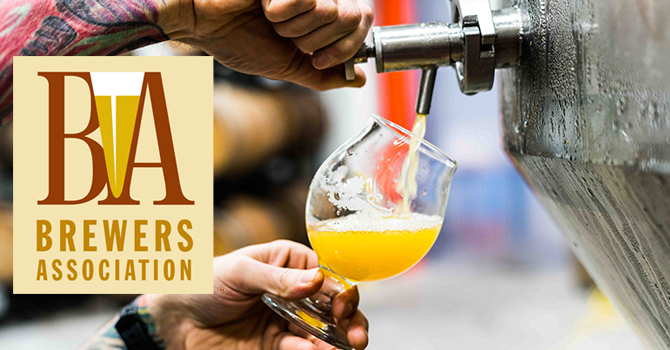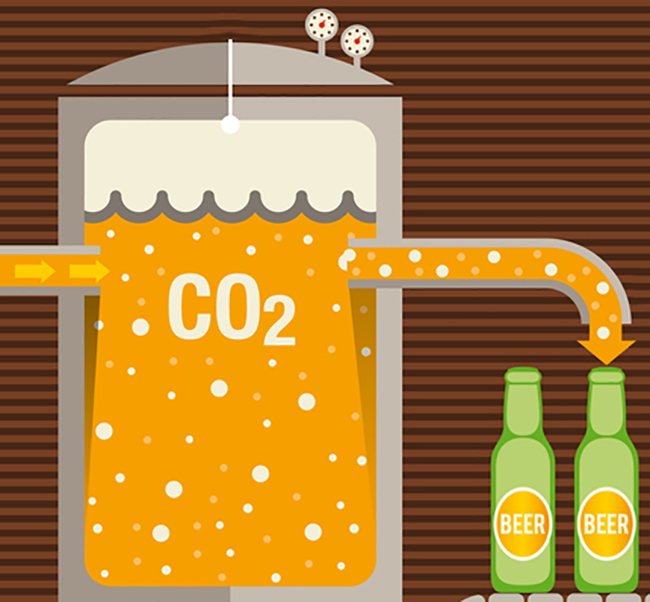Brewscape: The Latest Craft Beer Brand News
Brewers Association Approves Code of Conduct for Members
The board of directors of national not-for-profit trade group the Brewers Association (BA) has approved its first ever code of conduct for member breweries after criticism from industry professionals and consumers that it was too often silent in the wake of racist incidents. “The Code of Conduct codifies our commitment and responsibility as an industry to comply with state and federal regulations and to eliminate discrimination, harassment, and bias of all types,” BA president and CEO Bob Pease wrote to members. “We take our leadership role seriously and recognize that we must be actively anti-racist.”
Criticism of the BA on social media has centered on the association’s “limited public response,” as Pease phrased it in an email to members last month announcing the beginning of the process it would take to create the code of conduct and a complaint process and update its bylaws.
The code of conduct details the BA’s expectations for member behavior in four areas: Compliance with law, respect for the individual and groups, responsible alcohol consumption and responsible alcohol marketing.
Under the code’s respect for individuals and groups section, the BA specifies that members must “treat all individuals and groups respectfully, recognizing their human dignity, regardless of their diverse human characteristics: race, color, sex, sexual orientation, gender expression, age, physical or mental disability, size or appearance, genetic pre-disposition, religion, ancestry, national origin, or veteran status.”
Members must also “contribute to a positive environment that is free of hostile and offensive behaviors; i.e. free from harassment.”
“Harassment means any unwelcome and inappropriate verbal or physical conduct, or coercive behavior, where the behavior is known or reasonably ought to be recognized as unwanted or unwelcome,” the code continued.
The BA did not have a procedure in its bylaws to revoke membership. The code of conduct also calls for members to “speak out without fear of retaliation when the actions of others violate the rights of any individuals or groups,” “respect the opinions of others and address conflicts in a positive and constructive manner,” “respect others’ privacy in their personal lives,” and “treat all individuals and groups professionally and respect their personal property.”
Carbon Dioxide Shortage Squeezes Craft Brewers
Carbon dioxide (CO2) is in short supply, both gas suppliers and brewers have confirmed.
Most commercially used CO2 is a byproduct of ethanol production, which is used for gasoline. If ethanol is not produced, neither is CO2. “When COVID hit back in the spring, driving suddenly was really reduced, which means there wasn’t demand for gasoline,” Compressed Gas Association (CGA) president and CEO Rich Gottwald told Brewbound.
Brewers have many uses for CO2, including purging tanks, packaging beer in bottles and cans and pushing kegged beer through draft lines in taprooms. But they face a lot of competition in procuring CO2 from the country’s depleted inventory. The beverage industry — alcoholic and non-alcoholic — ranks third in commercial use of CO2, behind the food industry and dry ice, which is used in pharmaceuticals, water treatment, metal welding and more. Food producers use CO2 at nearly four times the rate of beverage makers.
Due to the shortage, CO2 distributors are allocating their supply to customers.
“There’s only so much CO2 availability right now, and I know that my network is doing the best they can to make sure that everyone gets some of it so that no one has to shut down,” Gottwald said.
He added that shortages have improved since the spring when the pandemic first upended American life.
However, breweries are beginning to feel the pinch. One northeast regional brewery had to order CO2 from Canada when inventory on this side of the border ran out, which led to packaging delays.
In California, Russian River Brewing Company is facing similar issues, co-owner Natalie Cilurzo said.
“We have refineries here in California, but because nobody’s driving to work anymore, gas sales are way down and so the refineries aren’t running,” she said. “We’ve been buying CO2 from the Midwest.”
Russian River’s cost for CO2 has doubled and the quantity of their next order was slashed by 75%, Cilurzo said.
“Not only has the price doubled, but supply is going down,” she said. “And now it’s definitely starting to affect the production side.”
A-B Adds Second Bud Light Seltzer Variety Pack
Anheuser-Busch InBev is “remixing” its Bud Light Seltzer variety pack, adding three new flavors — Cranberry, Grapefruit and Pineapple — that will be featured in a second variety 12-pack with its Strawberry flavor. The new mixed packs hit store shelves nationwide on August 31.
The existing Bud Light Seltzer variety pack — featuring Black Cherry, Lemon Lime, Mango and Strawberry — is already A-B’s 10th best-selling product in off-premise retailers tracked by IRI and the 28th best selling product year-to-date.
The original variety pack’s sales have surpassed each individual Truly Hard Seltzer pack. (Still, Boston Beer Company’s Truly brand family is much larger than Bud Light Seltzer as a whole, increasing sales 180.7%, to $543 million through early August.).
The variety pack has already racked up more than $155.5 million in dollar sales year-to-date through August 9, and 0.59 dollar share of the beer category.
Reyes to Fold Windy City into Chicago Beverage Systems
The Reyes Beverage Group plans to merge operations of its Chicagoland wholesalers — Windy City Distributing and Chicago Beverage Systems — into one company by mid-October.
“For the past eight years, CBS and Windy City have operated independent businesses servicing an overlapping territory with common customer accounts,” Stephen Reyes, president of Reyes Beer Division East, said in a release. “In order to realize the full operational efficiencies and overall business benefits for our RBD team, as well as our suppliers and customers, we are pleased to share that Windy City will formally become a part of CBS and we will operate as a single company in the Chicagoland area. This will provide more career opportunities for our employees and increased efficiencies for our supplier and retail partners.”
Chicago Beverage Systems has been in the Reyes Beer Division since 1979. The branch operates a 292,000 sq. ft. warehouse on Chicago’s West Side. The wholesaler’s website touts that it sells and distributes “the largest portfolio of import, craft and domestic brands in Chicago, delivering 8 million cases of beer each year to more than 4,000 retailers across the Chicago metro area.”
Chicago Beverage Systems’ portfolio of brands includes Molson Coors, Constellation Brands, Heineken and Guinness, as well as craft brands from Revolution Brewing, Half Acre, Boston Beer Company, New Belgium and Sierra Nevada, among others.
The Reyes Beer Division acquired Windy City Distributing in 2012. Windy City operates a 175,000 sq. ft. facility in Aurora. According to the Windy City website, the wholesaler delivered 2.6 million cases of beer annually to 6,400 retailers.
Windy City is a craft house, with a portfolio that includes Lagunitas, Three Floyds, Half Acre, Allagash, and Stone Brewing.


Receive your free magazine!
Join thousands of other food and beverage professionals who utilize BevNET Magazine to stay up-to-date on current trends and news within the food and beverage world.
Receive your free copy of the magazine 6x per year in digital or print and utilize insights on consumer behavior, brand growth, category volume, and trend forecasting.
Subscribe


